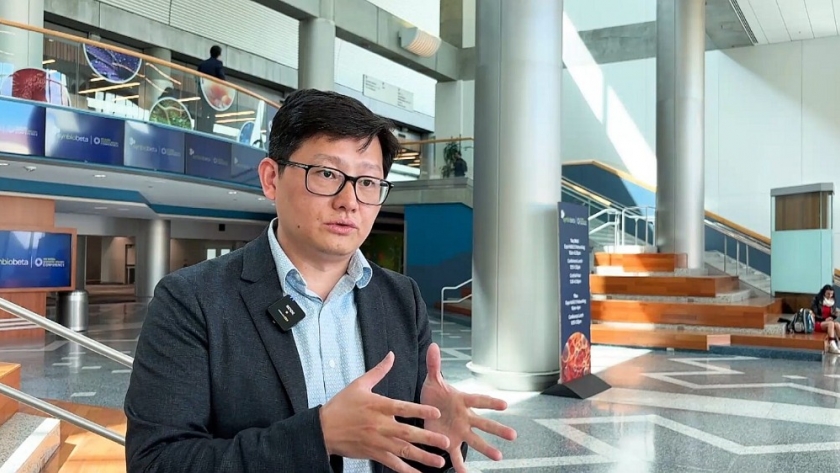
By Agroempresario.com
While synthetic biology and microbial strain engineering have seen rapid advances, the broader bioeconomy still struggles with a fundamental bottleneck: the disconnect between upstream fermentation and downstream processing. According to Dr. Michael Tai, cofounder of Boston Bioprocess, this gap is one of the most critical roadblocks holding back commercial scalability in industrial biotechnology.
Founded in Boston in 2022 by Tai, the former head of bioprocess at Motif FoodWorks, alongside entrepreneur Ted Netland, Boston Bioprocess relocated to Champaign, Illinois in 2023. The company offers bench-scale and pilot-scale fermentation and downstream processing services, supporting clients from early-stage startups to established industry leaders looking to develop or optimize microbial production systems.
Speaking to AgFunderNews at the SynBioBeta conference in San Jose, Dr. Tai emphasized a recurring pain point across the bio-based manufacturing sector: a lack of integration between upstream (fermentation) and downstream (purification and processing) activities.
“There’s been a significant over-investment in fermentation optimization and strain engineering," Tai said, "but a relative underinvestment in downstream processing. This imbalance has led to process inefficiencies that compromise final yields, scalability, and cost-effectiveness.”
He elaborated that companies often understand how their engineered microbes perform in a 500-liter bioreactor, but can’t predict with confidence how that performance will translate to a 500,000-liter system. Moreover, small upstream changes—such as the addition of anti-foam agents to boost yield—can severely compromise downstream filtration and recovery, yet these trade-offs are rarely communicated early in process development.
“If an upstream engineer adds 5 milliliters of anti-foam and gets a 10% increase in titer, but the downstream team later realizes this addition reduces their yield by 20%, then we’re going backwards,” he explained.
Tai argues that the biotech industry needs a more holistic approach that integrates fermentation and purification from day one. This means fostering talent that understands both disciplines and developing tools that model their interdependencies at lab and pilot scale.
Beyond process integration, Tai also weighed in on the debate over microbial hosts. Many industrial biotech companies rely on a handful of “chassis” microbes such as Pichia pastoris due to their well-characterized genetic toolkits and regulatory familiarity. While these workhorses can be engineered for broad applications, they often struggle to deliver high titers or product quality for more exotic molecules.
“You can brute-force an answer with Pichia,” Tai noted, “but you won’t always get the best one.”
As an alternative, Tai suggests deeper exploration of wild-type microbes. For instance, Trichoderma, a naturally protein-secreting fungus, can reach yields as high as 180 grams per liter when producing native enzymes—levels most startups would envy. However, the challenge lies in expressing foreign proteins in such organisms without running into secretion or stability issues.
“We need to ask: what type of molecule fits best with which chassis? That will guide whether you continue optimizing a known host or domesticate a wild one,” he said.
The potential of continuous fermentation was another hot topic. Tai acknowledged that while it offers promising cost and efficiency gains—especially in biomass and bulk protein production—its complexity limits widespread adoption.
In applications requiring specific proteins or tightly controlled induction mechanisms, continuous systems can become impractical. Maintaining peak microbial productivity over extended periods (e.g., eight weeks) in a continuous setup presents major challenges in seed culture dynamics, contamination risk, and equipment stability.
“If you're trying to run continuous fermentation with tightly regulated protein expression, it can get really hard to control all the variables,” Tai said. “That’s why the technology is still niche outside of certain segments.”
Ultimately, Tai believes that the future of biomanufacturing hinges on better data sharing, modeling tools, and talent pipelines that bridge the upstream and downstream divide.
Boston Bioprocess is carving out a unique niche by providing hands-on support to companies tackling exactly these issues. With bench and pilot-scale capabilities in Champaign, the firm offers a collaborative environment to experiment, troubleshoot, and refine fermentation processes before scaling up to commercial production.
“At the end of the day, if we want to build a stronger bioeconomy, we have to stop thinking in silos,” Tai concluded. “It’s not just about a better bug or a better reactor—it’s about the whole system working together.”
As biotech companies race to develop sustainable alternatives to petrochemical products, food proteins, and specialty ingredients, firms like Boston Bioprocess are helping ensure those innovations don’t stall in the "valley of death" between lab and market.
